Bal Keshav Thackeray lived his every breath for the Marathi manoos. But he died an unfulfilled man when what had been happening in the state all along happened in his own house: unmindful of his fervent appeals, the Marathi manoos always had his loyalties divided - between the Shiv Sena and the other parties and later, more bitterly, between the Shiv Sena and its rebel off-shoot, the Maharashtra Navnirman Sena founded by his own nephew.
This pain and sense of betrayal was evident in Thackeray’s last address to his followers on October 25 at the Sena’s annual Dussera rally and won’t be forgotten easily by his followers. “You have given me immense love as the Shiv Sena pramukh for the last 45 years, now show that same support to Uddhav and Aditya who have been chosen by you to lead the Shiv Sena,” a weak, frail and ailing Thackeray had said emotionally, making the line of succession absolutely clear. His speech was videographed as he could not make it to the Shivaji Park grounds in Dadar, Mumbai, due to poor health.
Thackeray was a straightforward man who loved his beer and minced no words. His love for the Marathi manoos was unadulterated by the diplomacy of politics. This was among his greatest strengths and appeal. Till his last breath he spoke his mind out, as he did in his Dussera rally speech when he criticised close friend and NCP president Sharad Pawar for asking the NCP to attend to the substantial non-Maharashtrian vote bank in Mumbai and other cities in the state.
Fiery in speech, Thackeray proclaimed his admiration for Adolf Hitler and embraced violence as a legitimate path to power. He did not believe in waiting for a political mandate to assert himself. If he decided that something had to be done - such as promote Marathi in Mumbai through the names on shop-fronts or attack migrants from UP and Bihar, all he had to do was issue a diktat and demonstrate results.
These were the qualities that instantly appealed to large sections of Maharashtrians in Mumbai, especially the poor, job-seeking migrants from Konkan as against the dominant sections of the middle and upper middle-class Maharashtrians who could not come to terms with his brand of politics based on violence, intimidation and hatred for Muslims. This came in later when he joined the BJP’s Hindutva bandwagon in the 1980s. Thackeray always tried to clarify that he was anti-Pakistan and not anti-Muslim but this distinction remained unconvincing.
Early in his political career, Thackeray recognised that his vote-bank was the poor, struggling, unemployed or poorly-employed Maharashtrian and not the well-off middle class Maharashtrian, who like other middle class communities was politically sterile. This distinction first became clear when Thackeray began his anti-South Indians agitation in the 1960s in Mumbai when he alleged that the sons-of-the-soil were being discriminated against in employment in Mumbai and South Indians were being favoured. Indeed, all the bosses around were South Indians during the time Bal Thackeray was a cartoonist, along with friend, RK Laxman in The Free Press Journal.
Deeply inspired by his father, social activist and writer Keshav ‘Prabodhankar’ Thackeray’s instructions to stand up against injustice, the young Thackeray began his political career by raising the issue of discrimination against Maharashtrians in employment and favouritism shown to South Indians. Thackeray was influenced greatly by his father who was among the leaders of the Samyukta Maharashtra (United Maharashtra) movement of the 1950s for the creation of Maharashtra on linguistic basis, with Bombay as its capital.
Right through his early agitations, especially the clashes with the reigning Communists to seize control of labour unions in Mumbai, Bal Thackeray was soon accused of building his band of followers through lumpen elements in Mumbai. Indeed, the local Dada- who was good at extortion, intimidation and vandalism in the various localities of Mumbai, found career growth coupled with political power through the Shiv Sena shakhas spread across Mumbai. The stigma of encouraging goonda elements has stuck to the Shiv Sena ever since.
By the mid-1980s, the Shiv Sena had consolidated its presence in Mumbai by repeatedly winning the municipal elections and a handful of seats in the state assembly. It was now dreaming of hoisting its party flag, the bhagwa on the state assembly. By now, Thackeray, who had always opposed India-Pakistan cricket matches in Mumbai had warmed up to the strong currents of Hindutva sweeping the country. The Sena’s anti-Muslim politics came under intense glare following the Bombay Riots of December 1992-January 1993 in which 900 people were killed in communal clashes. This was in the aftermath of the December 6, 1992 demolition of the Babri Masjid in Ayodhya and the Srikrishna Commission report in 1998 clearly indicted the Shiv Sena of inciting this violence and complicity. But the report was rejected by the Shiv Sena-BJP government as one-sided and nothing came out of it.
The mid-to-late 1980s was the period of Bal Thackeray’s forays into rural Maharashtra and he gathered support in parts of south and western Maharashtra such as Kolhapur and Satara as also Aurangabad in Marathwada. Shiv Sena shakhas were soon sprouting in rural Maharashtra and Thackeray’s speeches during the 1995 election rallies in the hinterland were often coarse, sprinkled with unparliamentary idiom, but immensely popular with the rural folks.
The alliance with the BJP brought about by the late Pramod Mahajan scored a sensational victory in the 1995 state assembly elections. Thackeray who had vowed never to become chief minister or hold any political post, anointed his trusted aide Manohar Joshi as the chief minister and ran the government through remote control.
The most telling imagery of this is the time when in 1995 the then chairperson of Enron International, Rebecca Mark, visited Thackeray at his residence to overcome the Sena’s opposition to the Enron project in the state.
The Mumbai-Pune Expressway and the 50-odd flyovers in Mumbai were the sparkling achievements of that Shiv Sena-BJP regime. However, the government failed miserably to promote irrigation in western Maharashtra through its Maharashtra Krishna Valley Development Corporation (MKVDC) projects which it had hoped would help the Sena win support in this bastion of the Congress. Much to Thackeray’s disappointment, the regime also failed to pursue his pet project of providing free homes to thousands of slum dwellers in Mumbai.
Bal Thackeray always had a special, cozy relationship with Bollywood, born more out of Bollywood’s fear of inviting the Tiger’s wrath, who could bring financial doom at the snap of a finger. Thackeray did not have the same relationship with the world of Marathi literature. Eminent writers and poets such as Pu. La. Deshpande and Vasant Bapat had deplored the culture of violence and intimidation promoted by the Shiv Sena and had in turn come under criticism from Thackeray.
Bal Thackeray’s biggest failure was his inability to adjust to the massive changes brought about by liberalisation in the 1990s. The demand for cheap labour had multiplied and with it, the migration of north Indians into Mumbai and other cities of the state. Merely attacking people from UP and Bihar to assert the rights of the Marathi manoos had become an outdated approach. The problems born out of unchecked migration needed fresh thinking and better solutions at a time when the bigger concern was combating terrorism.
The final blow was the power struggle within his family that led to the estrangement of nephew Raj Thackeray who formed his own Maharashtra Navnirman Sena and entered into an ugly cat fight with his own uncle and cousin. Bal Thackeray never recovered from that disappointment unto his last breath.


)




)
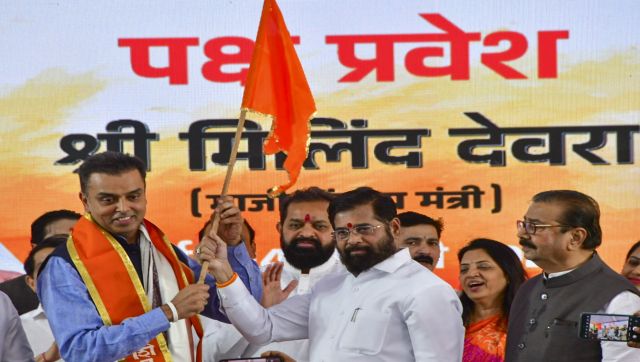)
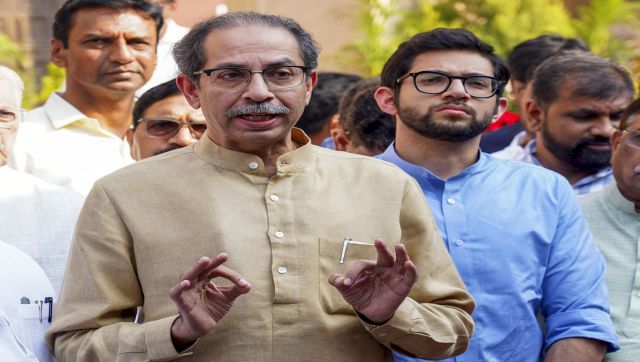)
)
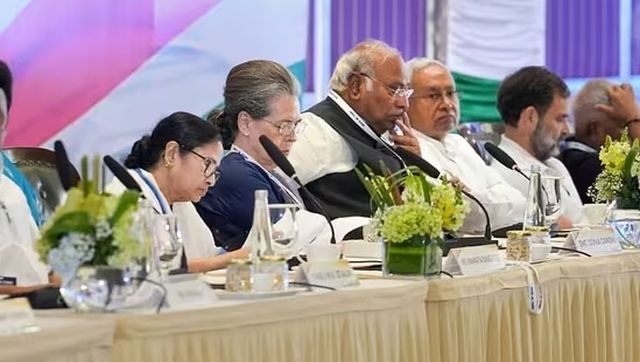)
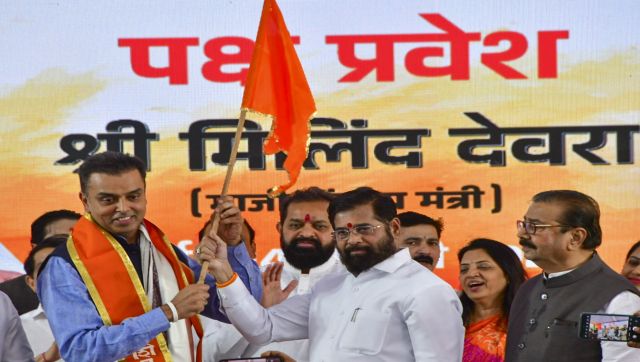)
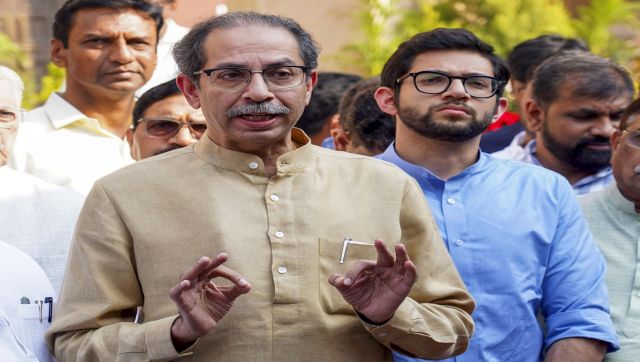)
)